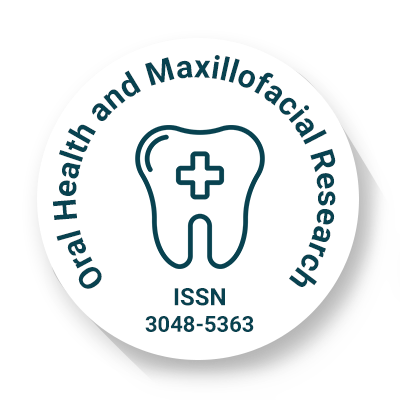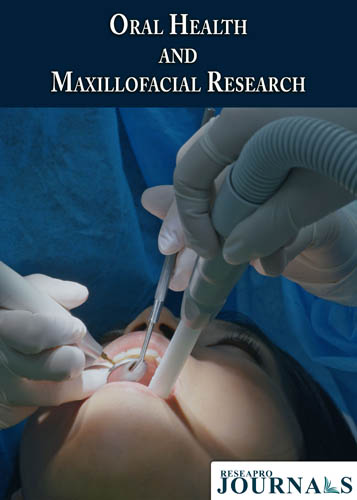
Oral Health and Maxillofacial Research
OPEN ACCESS
ISSN: 3048-5363

OPEN ACCESS
ISSN: 3048-5363

Background:
Diabetes mellitus (DM) is a chronic metabolic disorder characterized by hyperglycemia due to insulin deficiency, resistance, or both. It has a bidirectional relationship with oral diseases, influencing the onset and progression of periapical pathology. Chronic hyperglycemia impairs immune response, delays wound healing, and alters bone metabolism, predisposing diabetic patients to periapical infections. Studies indicate a higher prevalence of periapical radiolucencies in diabetic individuals, which may impact endodontic outcomes.
Objective:
This study aims to evaluate the association between DM and periapical pathology, assessing the prevalence, lesion types, and statistical significance of their correlation.
Methods:
A retrospective study was conducted using patient case records from 2020 to 2023. Data on age, gender, diabetic status, and periapical lesion type were collected. The sample included 51 patients diagnosed with periapical lesions, with 30% having DM. Statistical analysis was performed using SPSS version 23.0. The chi-square test and Pearson’s correlation were applied, with a significance threshold of p < 0.05.
Results:
Among the 51 patients with periapical lesions, 30% had DM. Diabetic males exhibited a higher prevalence of periapical lesions than diabetic females. The most common lesion type was radicular cyst (38%), followed by periapical granuloma (29%), granulation tissue (14.5%), residual cyst (3.6%), paradental cyst (3.6%), and infected odontogenic cyst (1%). A statistically significant association was observed between diabetes and periapical pathology (p < 0.05).
Conclusion:
The findings indicate a strong correlation between DM and periapical pathology, highlighting the need for early diagnosis and targeted endodontic management in diabetic patients. Clinicians should consider diabetes as a risk factor for periapical lesion progression, necessitating an interdisciplinary approach between dental and medical practitioners to optimize patient outcomes.